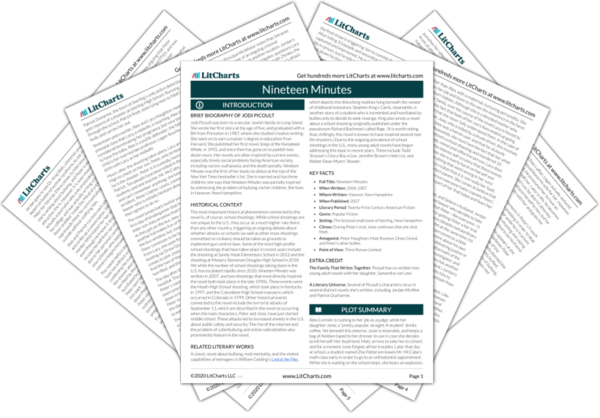Like Lacy dumping out her whole wallet into the collection for the Sterling High memorial fund, Lewis pays tribute to the victims in secret, leaving flowers anonymously. This moving and heartbreaking scene suggests that people should be more forgiving to Lacy and Lewis, who clearly feel a deep sense of guilt, shame, and remorse for what Peter has done, yet can’t even express this publicly because people have already judged them so harshly.
